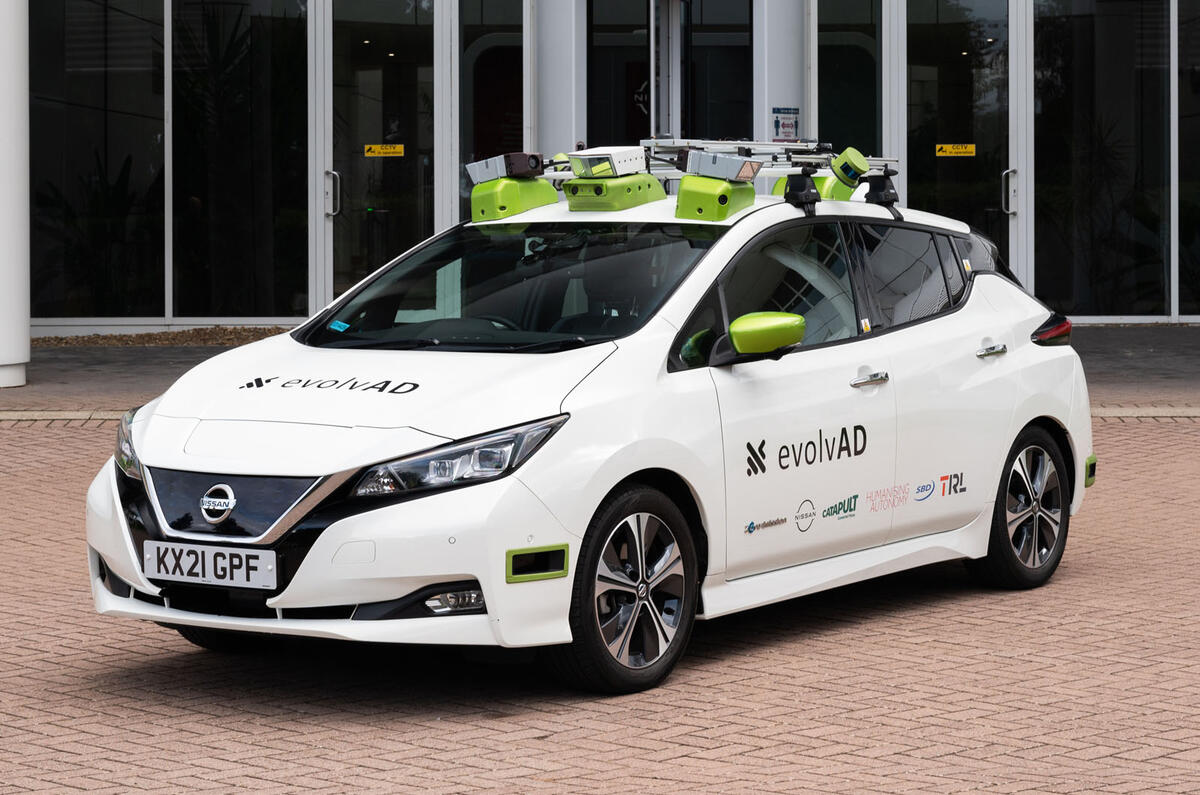A Nissan-led autonomous driving project will target the UK’s residential and single-track rural roads in a push to make the country more equipped to introduce self-driving vehicles.
Launched today, the evolvAD project will test a fleet of adapted Nissan Leafs over the next 21 months to assess if self-driving vehicles can be used outside of cities and in less-connected areas.




Add your comment